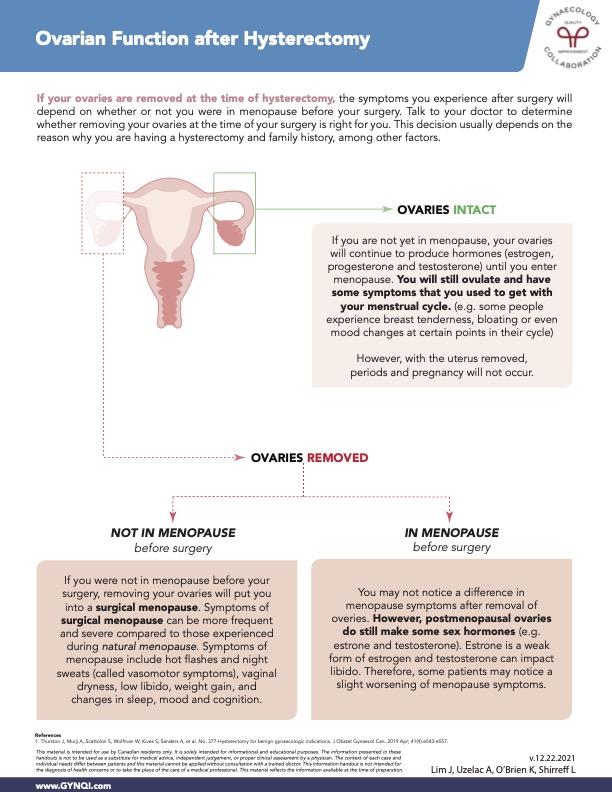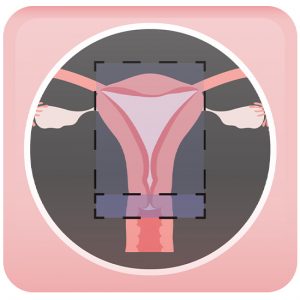
Table of Contents
- Summary
- Menopause and Ovary Removal
- Ovaries Intact After Hysterectomy
- Ovaries Removed After Hysterectomy
- Not in Menopause Before Surgery
- In Menopause Before Surgery
- Insights into Your Hysterectomy Outcomes
Summary:
- The removal of ovaries during a hysterectomy affects post-surgery symptoms, which differ based on whether the patient was in menopause before the procedure, making it essential to discuss ovary removal with a healthcare provider.
- If the ovaries are left intact and the patient is not menopausal, hormone production (estrogen, progesterone, and testosterone) continues until menopause, allowing for potential menstrual cycle symptoms despite the absence of a uterus.
- For those not in menopause prior to surgery, ovary removal leads to surgical menopause, which may cause more severe symptoms, such as hot flashes, night sweats, and mood changes, compared to natural menopause.
- If the patient was already menopausal before ovary removal, they might not experience significant changes, but the remaining hormonal production could lead to a slight worsening of menopause symptoms.
Menopause can impact your health, especially following a hysterectomy. If your ovaries are removed, recovery will vary based on whether you were in menopause beforehand, making it essential to discuss ovary removal with your doctor. Those who retain their ovaries will continue hormone production until menopause, and in contrast, removing the ovaries can lead to surgical menopause.
An in-depth discussion with your doctor is vital for effective health management.
Menopause and Ovary Removal
If your ovaries are removed during hysterectomy, your post-surgery symptoms will vary based on whether you were already in menopause. It’s important to discuss with your doctor whether ovary removal is appropriate for your situation, as this decision typically depends on the reasons for your hysterectomy and your family history, among other factors.
Ovaries Intact After Hysterectomy
If you are not yet in menopause, your ovaries will continue to produce hormones—estrogen, progesterone, and testosterone—until you reach menopause. You may still ovulate and experience some symptoms associated with your menstrual cycle, such as:
- Breast tenderness
- Bloating
- Mood changes at certain times
However, without the uterus, you will not have menstrual periods or the ability to become pregnant.
Ovaries Removed After Hysterectomy
Not in Menopause Before Surgery
If you were not in menopause before your surgery, removing your ovaries will put you into surgical menopause. Symptoms of surgical menopause can be more frequent and severe compared to those experienced during natural menopause.
Symptoms of menopause include:
- Hot flashes
- Night sweats
- Vaginal dryness
- Low libido
- Weight gain
- Changes in sleep
- Mood changes
- Changes in cognition
In Menopause Before Surgery
You may not notice a significant change in menopause symptoms after the removal of your ovaries. However, postmenopausal ovaries continue to produce some sex hormones, such as estrone and testosterone. Estrone is a weaker form of estrogen, and testosterone can influence libido. As a result, some patients might experience a slight worsening of menopause symptoms.
Insights into Your Hysterectomy Outcomes
The choice to remove the ovaries during a hysterectomy should be discussed with your doctor, considering your menopausal status and individual circumstances. If your ovaries are left intact, they will continue hormone production until menopause. However, removing them can induce surgical menopause, which may lead to more intense symptoms for those not already menopausal.
Understanding these factors is crucial for making informed decisions about your health after a hysterectomy.



